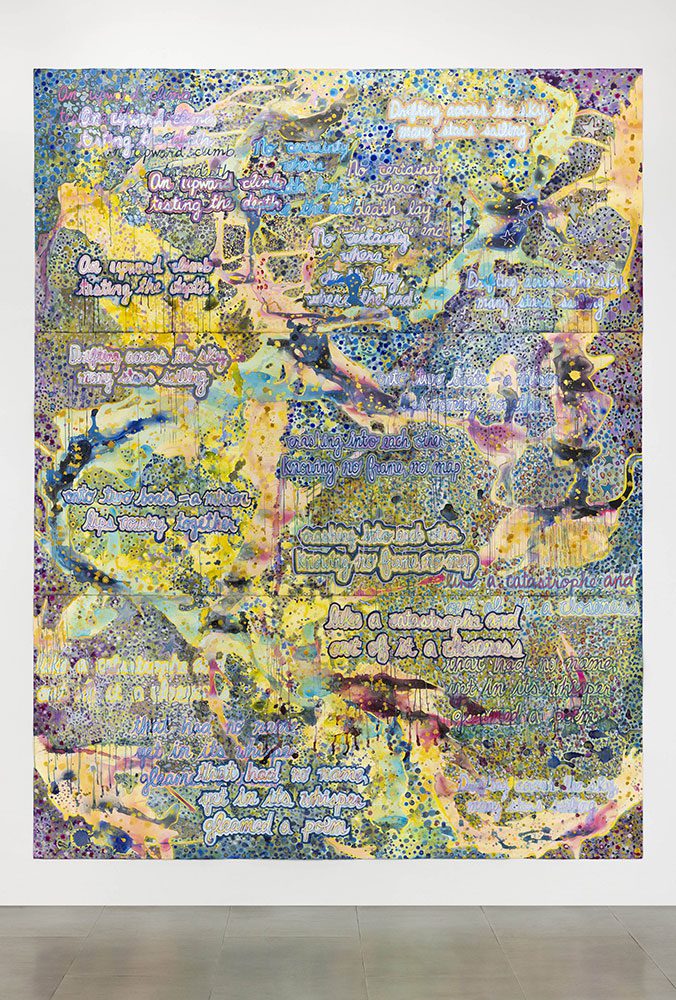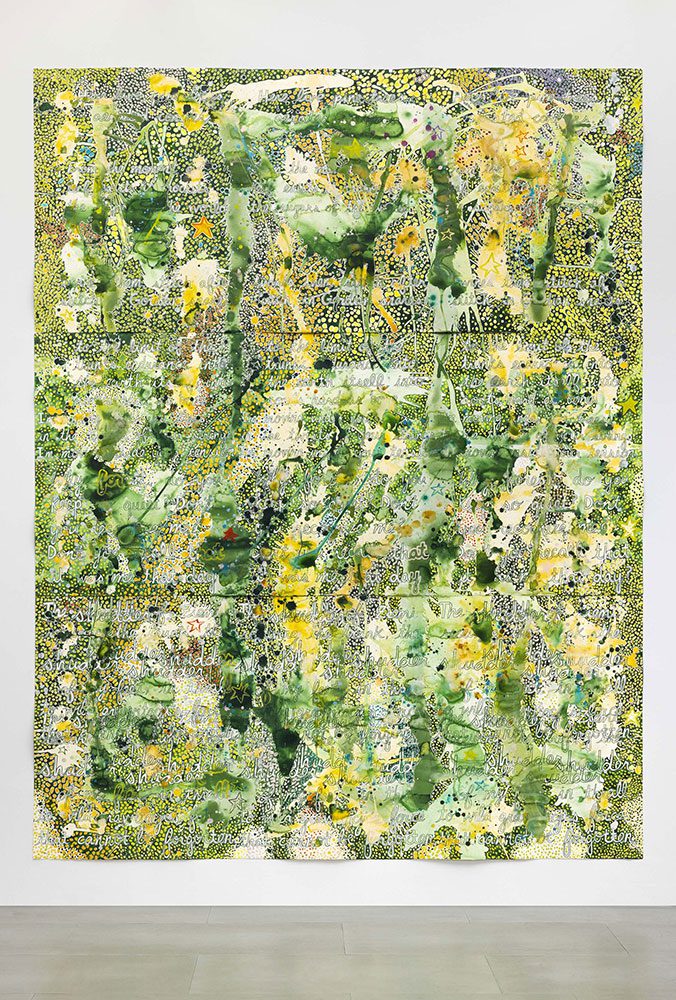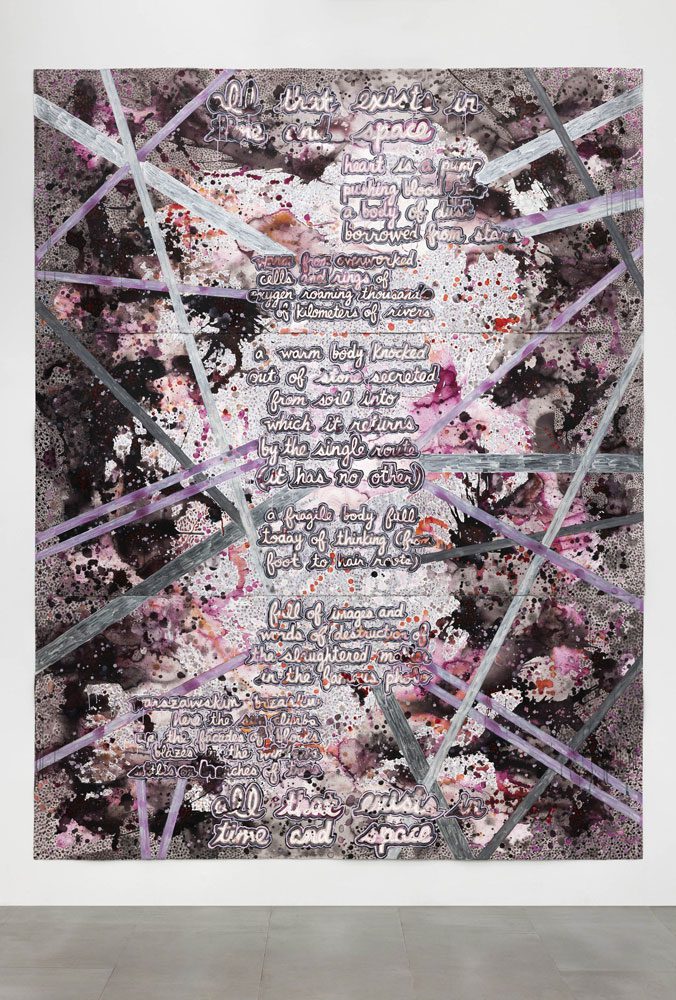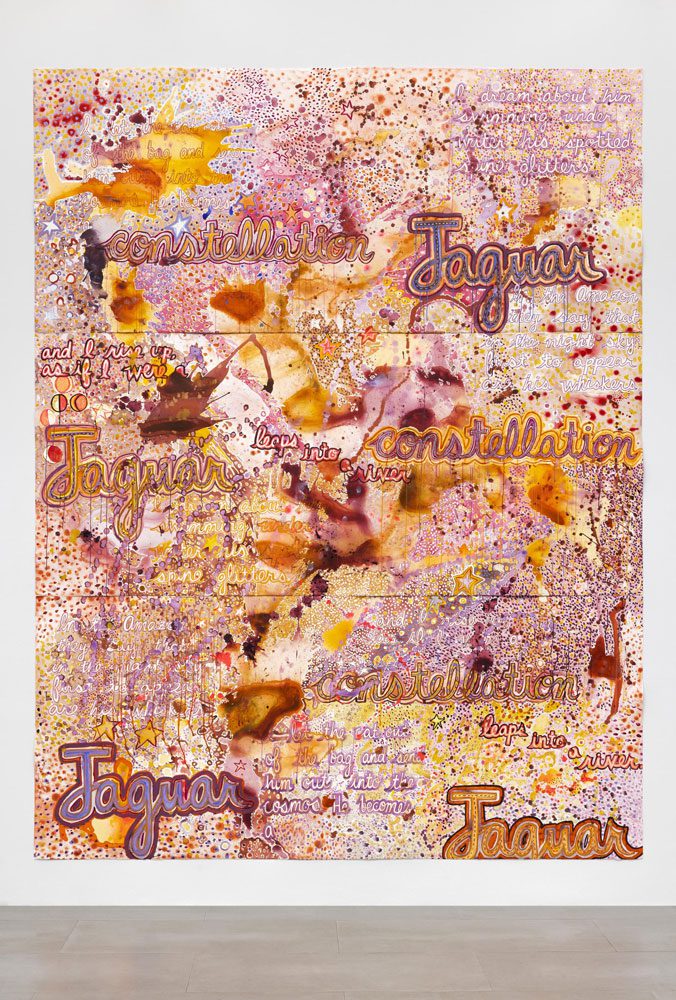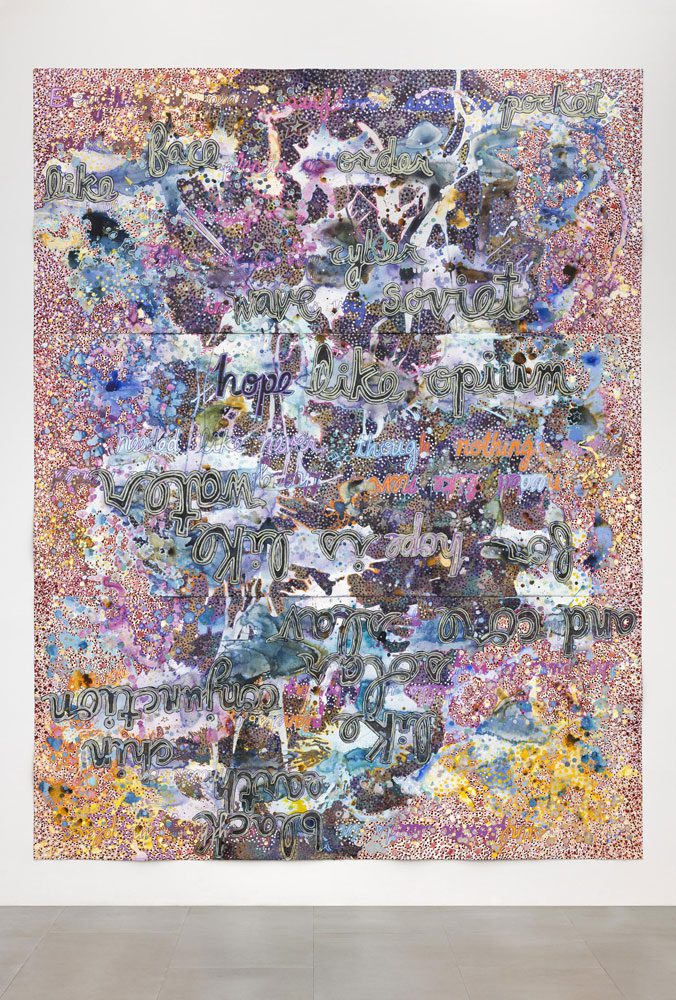ART CITIES: Berlin-Alexandra Grant
 Alexandra Grant is an American visual artist who examines language and written texts through painting, drawing, sculpture, video, and other media. She uses language and exchanges with writers as a source for much of that work. Grant examines the process of writing and ideas based in linguistic theory as it connects to art and creates visual images inspired by text and collaborative group installations based on that process.
Alexandra Grant is an American visual artist who examines language and written texts through painting, drawing, sculpture, video, and other media. She uses language and exchanges with writers as a source for much of that work. Grant examines the process of writing and ideas based in linguistic theory as it connects to art and creates visual images inspired by text and collaborative group installations based on that process.
By Efi Michalarou
Photo: Carlier|Gebauer Gallery Archive
“Everything Belongs to the Cosmos” is an installation of painted works by Alexandra Grant based on texts by Polish poets and writers Anna Adamowicz, Krystyna Dąbrowska, Julia Fiedorczuk, Bianka Rolando, Olga Tokarczuk, and Urszula Zajączkowska. Begun in 2021, the work is designed to create a chapel for reflection and space for hope, following in the rich tradition of contemplative chapel spaces created by artists as diverse as Henri Matisse, Mark Rothko, Ilise Greenstein and Theaster Gates. The six participating poets were chosen and commissioned in 2021 and early 2022 with the assistance of Marcin Orliński and the contributed work was translated from Polish into English by Antonia-Lloyd Jones. The curiosity that drives Grant’s career is in literary texts and making them visual. Since 2014, her work has revolved around Sophocles’ myth of Antigone, interpreting her utterance “I was born to love not to hate.” She has painted Antigone’s voice with drawn lines (to represent the rule of law) and bright pours of paint (which capture the chaos of life). In “Neunte Universum” (2020), painted and exhibited in Berlin in 2021 at carlier | gebauer gallery, her “Antigone” series expanded to include the universe itself. This painting was technically and culturally a springboard for “Everything Belongs to the Cosmos”. The Polish poets and writers featured in Grant’s painted “Cosmos” span generations and levels of recognition, with Tokarczuk the winner of the 2019 Nobel Prize in Literature and are meant to highlight the current writing scene in Poland as each interprets an aspect of the cosmos. Taking each writer’s text as a cue, Grant created one large-scale painting based on each text in English, each on paper and at a scale of 3.9 meter tall and 3 meter wide or larger, the largest works she has ever created. The installation of the six paintings is meant to create a chapel space – and quite literally a cosmos – for and of women’s voices. Engaging the community of Polish poets and writers during the pandemic, the Ukraine war and refugee crisis, as well as the changing political circumstances for women in Poland has allowed for cross-cultural exchange and opens a conversation around the purpose of and hope that writing, art-making, reflection and community can bring. By commissioning the poets and writers and having their work translated to English by Antonia Lloyd-Jones, Grant’s aim is “to further translate their words into the visible and visual. The title of the exhibition captures both a sense of wonder and a surrender to reality and circumstances, which allows for a transcendence of material conditions. “Everything Belongs to the Cosmos” is a safe haven: a place for reflection and hope, both part of and apart from the chaos of the world. Grant’s interest in Polish literature began over 20 years ago, when she first read Wislawa Szymborska’s work and embarked on representing the poem “Possibilities” as a drawing without paper, made out of wire, in 2001.
Photo: Alexandra Grant, The Spark, Cosmos V, (excerpted from Olga Tokarczuk’s, “Prowadź swój pług przez kości umarłych” 2009), 2024, Silk screen, colored pencil, acrylic paint, acrylic ink and sumi ink on paper, 390 × 450 cm, © Alexandra Grant, Courtesy the artist and Carlier|Gebauer Gallery
Info: Carlier|Gebauer Gallery, Markgrafenstraße 67, Berlin, Germany, Duration: 23/11/2024-11/1/2025, Days & Hours: Tue-Sat 11:00-18:00, www.carliergebauer.com/
